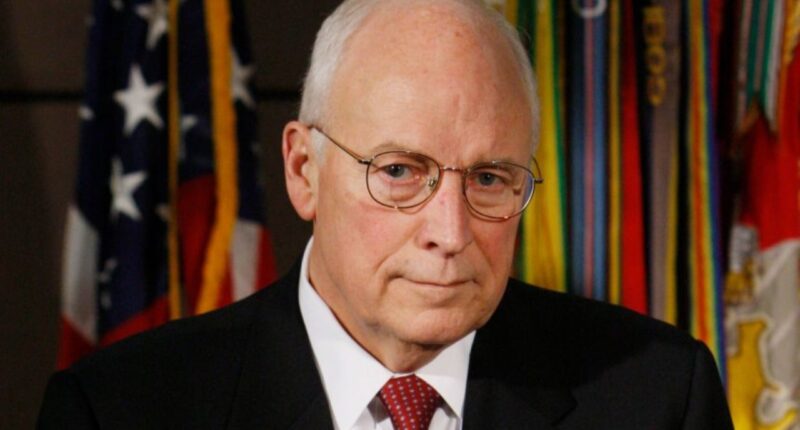The death of former Vice President Dick Cheney on November 3, 2025, at the age of 84, has closed a major chapter in American political history. Often described as the most powerful vice president the nation has ever seen, Cheney’s legacy is shaped by his decades of influential service in Washington. But his passing has also cast a spotlight on another aspect of his life: the immense fortune he built, a fortune that mirrors his unique journey through the corridors of power and the boardrooms of corporate America. His financial story is one of strategic moves between public office and the private sector, ultimately leading to an estimated net worth of $150 million.
While his roles in the White House, Congress, and the Pentagon provided him with immense influence, they were not the primary sources of his wealth. Instead, his financial empire was largely constructed during a five-year period in the private sector, leading a global giant in the energy industry. This accumulation of wealth, particularly his lucrative compensation from Halliburton, has long been a subject of both fascination and controversy, illustrating the powerful intersection of politics, business, and personal fortune.
You Might Like: The $20 Million Legacy of Robert Charles Hunter
The Halliburton Windfall: Building a Corporate Fortune
The foundation of Dick Cheney’s $150 million net worth was laid during his tenure as the chairman and CEO of Halliburton, one of the world’s largest oilfield service companies. He led the company from 1995 to 2000, stepping down to run as George W. Bush’s vice-presidential candidate. That half-decade in the corporate world proved to be the most financially rewarding of his life.
According to financial disclosures released in 2000, Cheney earned a staggering $72.5 million in total compensation during his time at Halliburton. This colossal sum wasn’t just a salary; it was a mix of a $12.5 million base pay, $20 million in retirement benefits, and another $40 million in stock options. When he resigned, he was also the holder of substantial company stock, with Forbes reporting at the time that he had accumulated shares and vested options worth an estimated $47.4 million.

This period of his life transformed his financial standing, setting him up for lifelong wealth. A 2008 wealth disclosure revealed that his net worth was between $20 million and $100 million, far exceeding that of President George W. Bush at the time.
Also See: What Was Diane Ladd’s Fortune at Her Death?
A Career at the Crossroads of Power and Profit
Cheney’s financial trajectory is a classic example of the “revolving door” between Washington and the private sector. His high-level government experience made him an attractive candidate for corporate leadership, and his subsequent corporate success, in turn, amplified his profile when he returned to public service. Before his Halliburton years, Cheney had already built a formidable resume: White House Chief of Staff under President Gerald Ford, a six-term U.S. Representative from Wyoming, and Secretary of Defense under President George H.W. Bush. These roles built his power and prestige, but not his bank account, at least not directly.
After leaving the vice presidency in 2009, Cheney continued to add to his wealth through other channels. He co-authored books with his daughter, Liz, including his memoir “In My Time,” and engaged in paid speaking engagements. His savvy investments in energy, defense, and finance, alongside a portfolio of real estate that has included homes in Virginia, Maryland, and Wyoming, further grew his fortune over the long term.
While his policies and his corporate ties remain topics of debate, his financial legacy is clear. Dick Cheney mastered the art of navigating the worlds of both governance and commerce, leaving behind not only a profound political impact but also a fortune worth an estimated $150 million.









